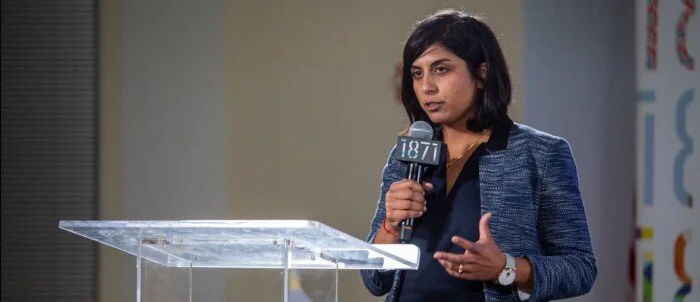By Jessica Droste Yagan and Priya Parrish
As the impact investing ecosystem has evolved and grown, we have seen more sophistication related to impact management and measurement. While neither completely adopted nor perfectly executed, definitions of and rubrics for what makes an impactful fund manager or company now exist as part of most impact diligence and reporting processes. As an investor in both funds and companies and an investee of many different types of investors -- from family offices, to foundations, to registered investment advisors -- over the years, we have been thinking about the other side of the impact market. We have been asking ourselves what investors in private funds, or Limited Partners (LPs), can bring to the table, and how they can affect impact outcomes. In other words, what makes an “Impact LP”, and why is it important that they (we) exist?
There are three things that stand out to us about Impact LPs versus “regular” LPs, or even “regular” LPs that are using impact definitions and rubrics in their processes: (1) critical thinking, (2) collaboration, and (3) ongoing engagement.
Critical Thinking
In the earliest days of Impact Engine and the impact investing industry, potential LPs considering investing in our funds wouldn’t ask us any questions about impact. In those days, due diligence was typically focused on financial returns, and a manager’s stated objective to be impactful was sufficient. Over the intervening years, it became more and more clear to the industry that statements about impact objectives did not always translate into a robust strategy for driving that impact throughout the fund’s activities, from sourcing to company selection and post-investment portfolio management. It thus became more common for LPs, including our own, to ask more questions about a manager’s criteria and approach to impact management. Today, most potential investors have a checklist they follow to conduct diligence on a manager’s impact approach.
Some investors, however, go beyond checking boxes about what we do or don’t do and engage in deeper questions about the implications of our choices on our sourcing strategy, investment universe, portfolio construction, portfolio management approach, time horizon, etc. They ask us deep, thoughtful questions about the implications of our choices, recognizing the intentionality behind our investment thesis and how it drives our investment strategy, process, and ultimately financial and impact outcomes. They make us think more deeply about how impact is reflected in our thinking and our decisions. We call these investors “Impact LPs” because their approach to due diligence has an impact on us.
As an Impact LP ourselves, we are aware that the questions we ask have an effect on the fund managers we invest in. If the only question a General Partner (GP), or fund manager, ever gets asked about impact is “how do you measure it”, then it’s unlikely they will be pushed to think critically about their impact thesis, criteria, and management approaches. If an LP never goes to the portfolio company level, zooming in to each company to understand how the fund’s thesis relates to the decision to invest in the company, GPs will think it’s acceptable to have investments in their fund that don’t match their impact objective. And if no one ever asks a GP about how their team’s identities and experiences give them perspective in their impact focus area, then they won’t necessarily prioritize hiring a team with relevant personal and professional experiences that can drive impact.
We have heard from many fund managers, both those we’ve invested in and those we passed on, that our very first introductory call led them to step back and think through their impact strategy with more nuance. For LPs wanting to create this impact, start by making sure that you don’t leave a call without understanding the following:
How do making money and creating impact go together and reinforce each other for this fund manager’s strategy? When might they be at odds?
Is the manager aware of this tension and how are they addressing it?
What are the implications on financial returns and impact?
We also know that in order to access the true breadth of the impact investing supply, we have to go outside the few tried and true firms to those who might be newer (emerging managers) or newer to impact (impact whisperers). Naturally, going into newer parts of the industry requires even more critical thinking. Emerging managers require willingness to take a bet on a new manager and think critically about their capabilities based on their experience and how it aligns with their strategy. Impact whisperers require thinking critically about whether impact is being adopted into decision making and strategy in a meaningful way.
Collaboration
Impact LPs have a different positioning in the conversation and process with us from the very beginning. Rather than asking questions solely to make their investment decision, Impact LPs engage in dialogue with us to give feedback and even brainstorm more effective approaches to impact management. This comes from mutual interest in genuinely finding and executing on successful impact investments, while recognizing that there are multiple ways to achieve this and we are both interested in continuous improvement. That doesn’t mean they are not critical in diligence, nor that they always choose to invest in us, but rather that their approach is always in the spirit of what we can learn from this process to get positive outcomes. They ask us: How could you be better? How can we help?
As an Impact LP ourselves, we think this way. When we meet with GPs, the questions we ask come from the perspective that we want them to be successful at driving both financial returns and impact -- since collectively, we are all part of the impact investing industry, which needs credible, high performing managers to be successful. That means we are transparent with our feedback, even if it’s critical, as we know that it will help those firms genuinely looking to drive impact alongside financial returns.
Beyond feedback in the normal course of conversation, we also often offer GPs resources and suggestions to improve their impact management. This may include introductions to trade associations (e.g. Impact Capital Managers), formal training (e.g. Impact Frontiers), and even peer GPs that are on a similar journey. For managers that are willing to open their books up to us beyond what is typically in a data room, we’ve been involved in reviewing their memos and diligence to give suggestions on deepening their approaches to impact assessment, measurement and management. These are a great use of our time, because we can directly help managers be more impactful, and we can also learn new tools to apply to our own investment process.
Of course, we know that collaboration can go beyond impact as well. In particular, being an emerging manager or impact whisperer comes with its challenges. Therefore, we often give suggestions about fundraising and make introductions where we think there is mutual interest. We want to have a positive impact on managers, and therefore our time spent with prospective GPs is not just about our own investment process and needs; we listen to what they need and try to add value where we can.
Ongoing Engagement
Impact LPs don’t stop paying attention to impact after their diligence ends. They stay attuned to it throughout the life of the relationship. When we hear from the Impact LPs in our fund, their questions are just as likely to be about impact as about financial returns. They want to know what we’ve learned and how we’re engaging with our companies and funds, like they engage with us. They want to confirm that we are still all on the same page in our combined journeys to align financial and social returns. They want to learn from us and share what they’ve learned from others in this young industry.
We feel the same way and have become immeasurably smarter about what it means to be a successful impact investor through ongoing engagement with our LPs as well as our GPs and portfolio companies.
Our engagement with GPs deepens after we’ve made a commitment. This starts by our commitment to read what they write and distribute. This sounds like table stakes, but we know that very few LPs read impact reports. In contrast, we make a point to share formal feedback on every GP’s report. We also reach out for a formal meeting every quarter at a minimum. This gives us the opportunity to continue asking critical questions, but also be available to answer questions the GP has for us. We are here to help managers navigate impact management as it grows more sophisticated - we are learning and growing together.
In addition to our own engagement, we look to bring more resources to the manager’s practices. This includes making formal connections and hosting meetings between our GPs so that they can learn from each other. We also create and serve on Impact Advisory Councils, which are an important mechanism for GPs to receive feedback from multiple perspectives. Managers also frequently call us for input on important decisions related to impact management, including hiring team members, investing in measurement resources, and joining industry organizations. While we are proud to be a trusted resource, we also gain much from these discussions as we are continuously looking to improve our own practices.
We will continue to strive to become a best-in-class Impact LP -- we appreciate our LPs who are with us in this quest, and we welcome all others to join!








